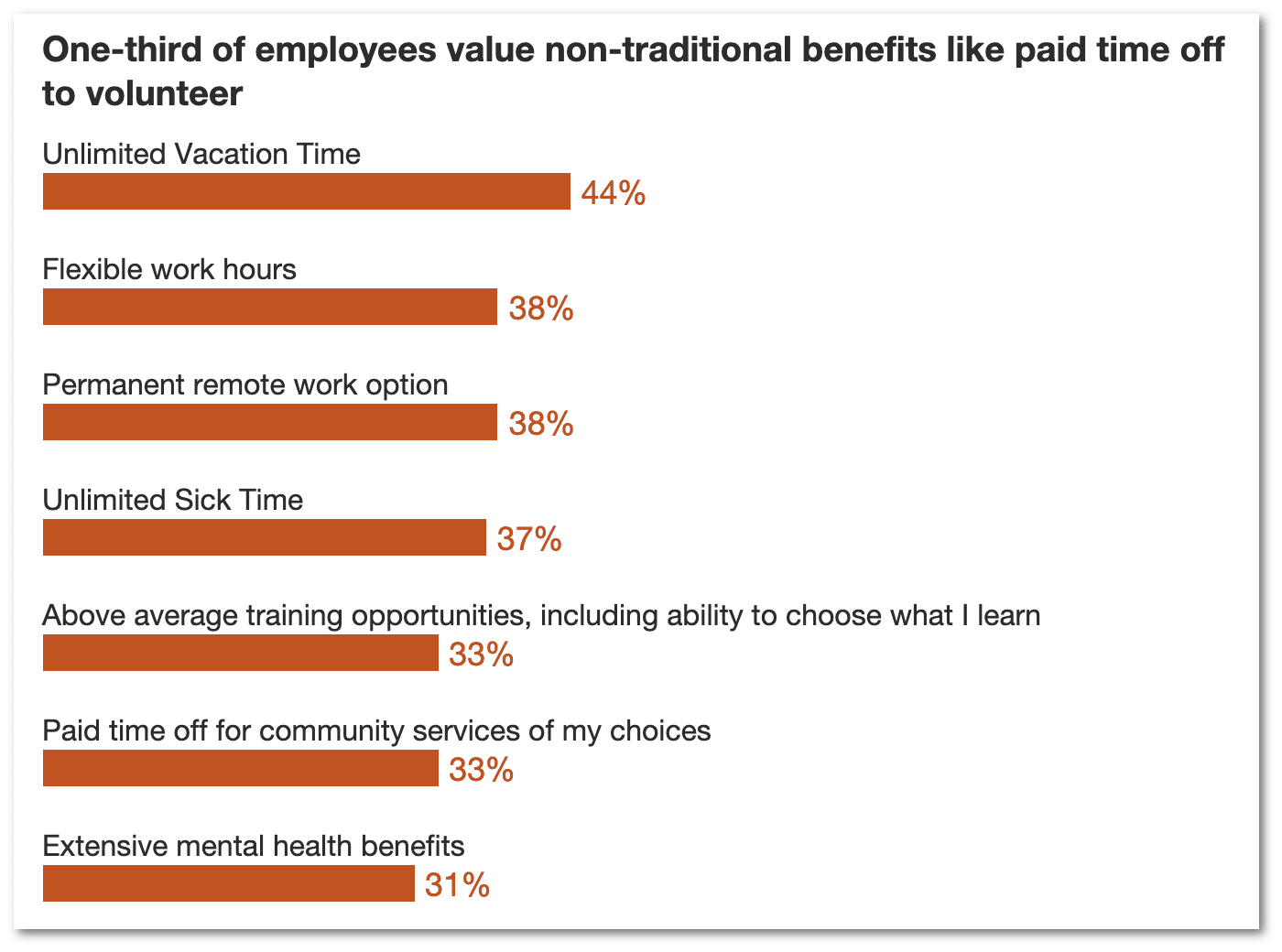Highlights:
- After a year of remote work, priorities have completely changed for employees and employers alike.
- 34% of workers moved during the pandemic, and half of them never plan to go back.
- Nearly half of millennial and Gen Z workers expect some form of remote or flexible work environment.
- These are the latest trends in post-pandemic work, according to PwC.
If you thought the pace of change and upheaval in the workforce was going to slow down in 2021, you thought wrong. Businesses are charging ahead with post-pandemic plans, but they’re doing so amid a serious shakeup of long-held attitudes and beliefs about what works best at work.
For organizations that want to foster high levels of employee productivity, engagement, and retention, it would be unwise to move forward without a close look at how workers’ attitudes and values have changed over the last year and a half.

Get the free guide
A recent PwC survey of more than 1,500 US employees observed some key trends that will shape workplaces moving forward. Here are some significant findings to consider.
1. Relocation is on the rise
Remote work didn’t just unshackle workers from the office—in many cases, it unshackled them from their homes too. A sizable 34% of workers permanently or temporarily moved or are considering a change of address that would involve relocating more than 50 miles from the office, PwC found.
“Employers with headquarters and offices in major cities will need to decide if they will allow employees who relocate to work remotely on a permanent basis.”
There are many things driving these moves—better cost of living, proximity to family, escaping dense urban areas during the pandemic. While roughly half of those who moved or are considering moving say their relocation is temporary, the other half expect their change of address to be permanent. This means employers must reconsider how to accommodate workers who no longer live within daily commuting distances—or risk losing those employees.
2. Millennials and Gen Zs expect remote work
Attitudes surrounding remote work have changed—especially among younger employees. Even before the pandemic, remote work was growing as an added bonus to compensation packages. Now after a year of working from home, it’s become an expectation. Nearly half of Gen Z and millennial workers polled are so keen on the flexibility and other benefits of remote work that they’d give up a higher salary in return for the ability to work from anywhere.
Workers are willing to give up 10% of future earnings for remote work
Source: PwC
45%
of Gen Z (ages 18–24)
47%
of millennials (ages 24–40)
38%
of Gen X (ages 41–56)
This underscores the idea that employees increasingly expect to be able to work remotely—and that companies that don’t allow some flexibility in this respect may face a harder time bringing on or keeping younger talent.
3. Workers value time over money
Once upon a time, a big paycheck might have been sufficient motivation for workers to slave away around the clock. But that’s no longer the case. Whether it’s a case of shifting generation values, individual re-evaluation of people’s lives in the face of a global health crisis, or other factors at play, worker values have shifted significantly.
Across age groups, 44% of workers said they would be willing to forgo a 10–20% pay raise in return for unlimited vacation time. Workers also voiced a high preference for other intangible benefits that add greater meaning to their work and personal lives.

Roughly a third of respondents said they would accept smaller pay increases in return for more training opportunities at work, paid time off to perform volunteering activities in their communities, or extensive mental health benefits. Younger workers, in particular, expressed a high desire for these non-monetary benefits.
4. More employees value problem solving over technical skills
What does it take to succeed in today’s workplaces? A growing number of workers are focused on soft skills that can improve their versatility and ability to work with others over more specific technical skills.
Thirty-two percent of workers who participated in the PwC survey cited problem-solving skills as most critical to their future career paths, followed by the ability to learn new skills and apply them quickly (31%), adaptability (27%), critical thinking (24%), and creativity and innovation (22%).
Given the high number of respondents who placed a value on training opportunities over salary increases in the previous section, these answers provide something of a roadmap for potential upskilling programs within the workplace. They also provide strong clues about the types of agile, collaborative workplaces employees are eyeing for the long term.
Looking For Startup Consultants ?
Call Pursho @ 0731-6725516
Telegram Group One Must Follow :
For Startups: https://t.me/daily_business_reads




